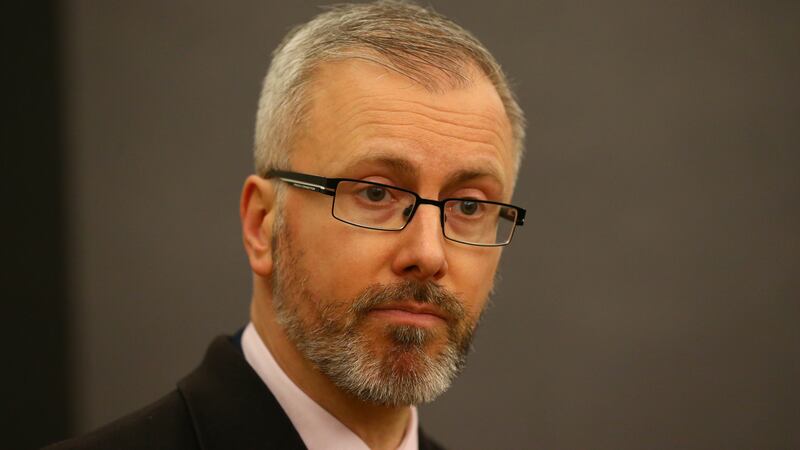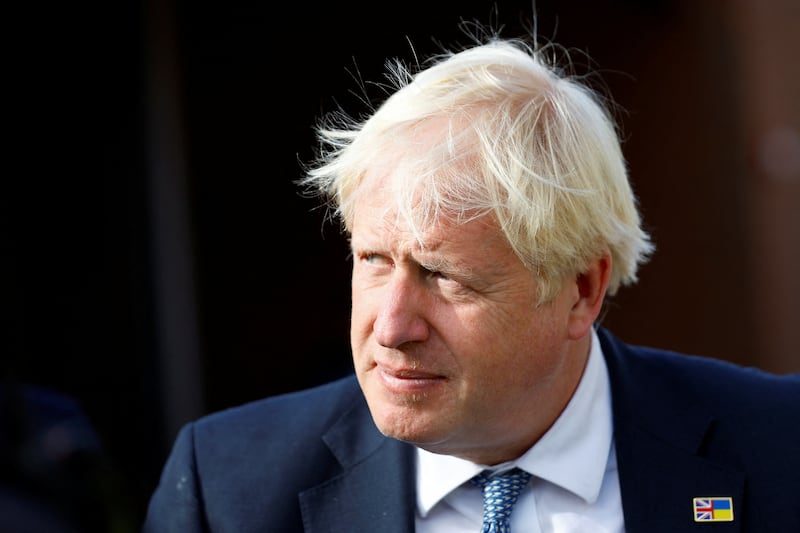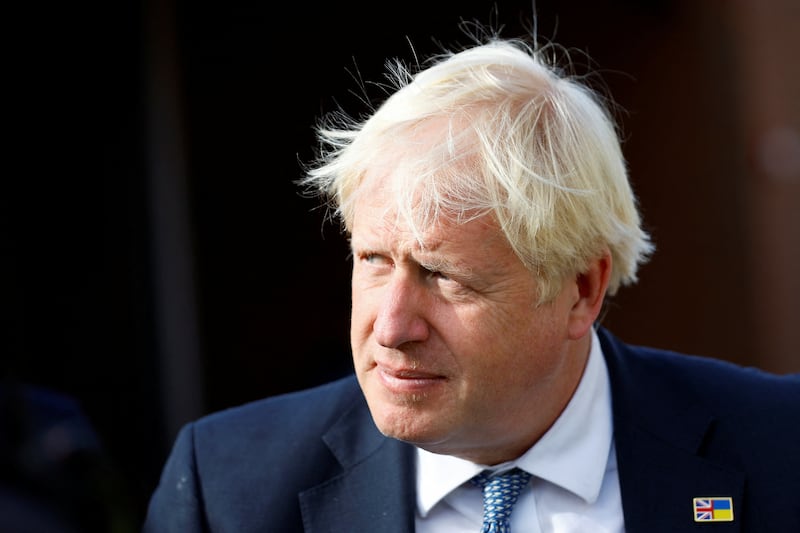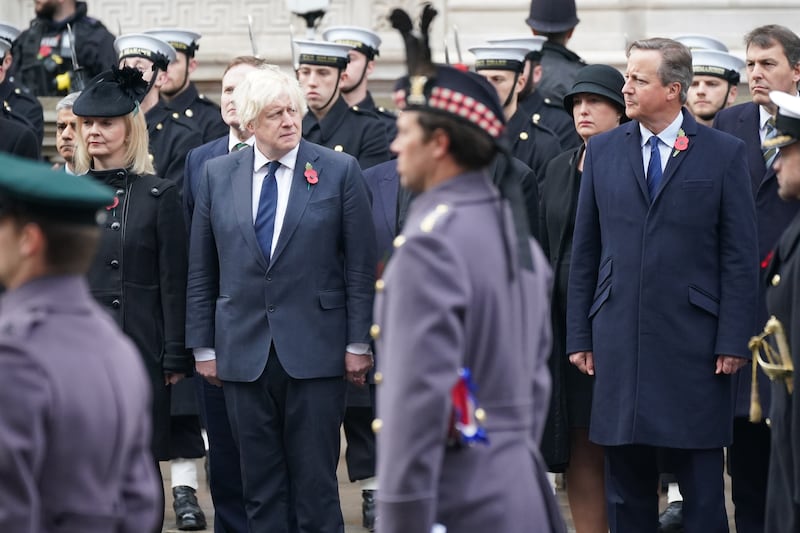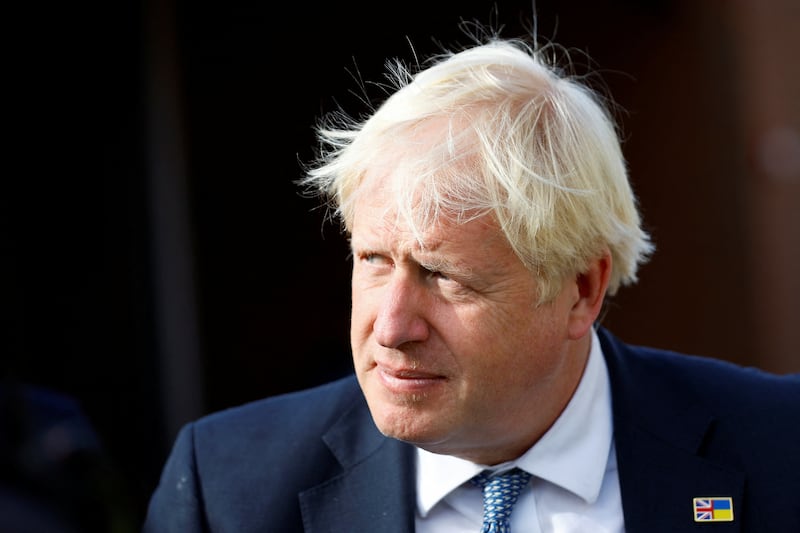Divisions within the Conservative Party must not dictate the UK approach to negotiations over the Northern Ireland Protocol, the Irish foreign affairs minister has said.
Simon Coveney warned that divisions within the Conservative Party could not impact on UK-EU negotiations over the post-Brexit arrangements for the region.
Tory MPs voted by 211 to 148 in support of Prime Minister Boris Johnson on Monday.
It comes amid a stand-off between the UK and the EU over the Northern Ireland Protocol, an agreement designed to avoid a border on the island of Ireland and which instead created fresh checks on trade between Great Britain and Northern Ireland.
Foreign Secretary Liz Truss has said the UK intends to legislate to override parts of the deal on Northern Ireland.
Opposition to that deal has seen the DUP block efforts to restore powersharing in the region.
Mr Coveney said on Tuesday: “If those divisions within the Conservative Party impact on Ireland, because the Prime Minister or the British Government decides in order to maintain support within the party that they have to take a tougher line on Brexit, or on the Northern Ireland Protocol, well then obviously divisions in the Conservative Party and in the British Government impact on Ireland.
“And of course, that’s where we have a concern.”
He told RTE radio: “So whoever is the British prime minister, we will work with them, of course, but what we don’t want to see is Ireland being part of a strategy to maintain support within the Conservative Party in the context of hardening a position on the Northern Ireland Protocol.
“The Irish government’s position is very clear on this.
“We believe we can settle these issues.
“We can address to a large extent the concerns that have been expressed by the unionist community in Northern Ireland by implementing the protocol with a lot of flexibility and pragmatism, and by doing that, settling issues that have been causing divisions for far too long in Northern Ireland politics.
“But in order to do that, we need a partner.”
Mr Coveney said the EU wants “serious” negotiations and is willing to compromise and show flexibility.
He said he hoped planned legislation to override parts of the Northern Ireland Protocol would not become the “price” of Conservative Party support for Mr Johnson.
The foreign affairs minister argued that the British Government had not shown the necessary “seriousness” to reach an agreement on the post-Brexit arrangements for Northern Ireland.
He said the UK Government was instead “threatening to publish legislation this week which would effectively be using British domestic law to breach international law by setting aside elements of their treaty obligations”.
“That would be a big mistake I think politically, because I think it’ll cause an awful lot more problems than it solves.
“I certainly hope that’s not the price of the British Prime Minister maintaining majority support within his own party.”
Speaking during a visit to Strasbourg on Tuesday, Taoiseach Micheal Martin urged the UK Government not to act unilaterally over the protocol.
He said: “Europe will respond in a calm and a firm way to whatever decisions are taken by the British Government and in relation to whatever legislation is published and enacted.
“I am very clear that unilateralism will not work.
“I would say to the United Kingdom Government it needs to think of the people of Northern Ireland and not to do anything which undermines the economic wellbeing of the people of Northern Ireland.”
He added: “I don’t want to become involved in any shape or form in what is transpiring in internal British politics; as far as I am concerned, I am dealing with the British PM and I have appealed to him consistently to engage with the European Union.
“I get a sense that people want a bit of stability and I think the first thing we could do collectively, Europe and the UK and Ireland as members of the EU, is to do the sensible and pragmatic thing. Get into negotiations and solve the issues around the protocol.”
